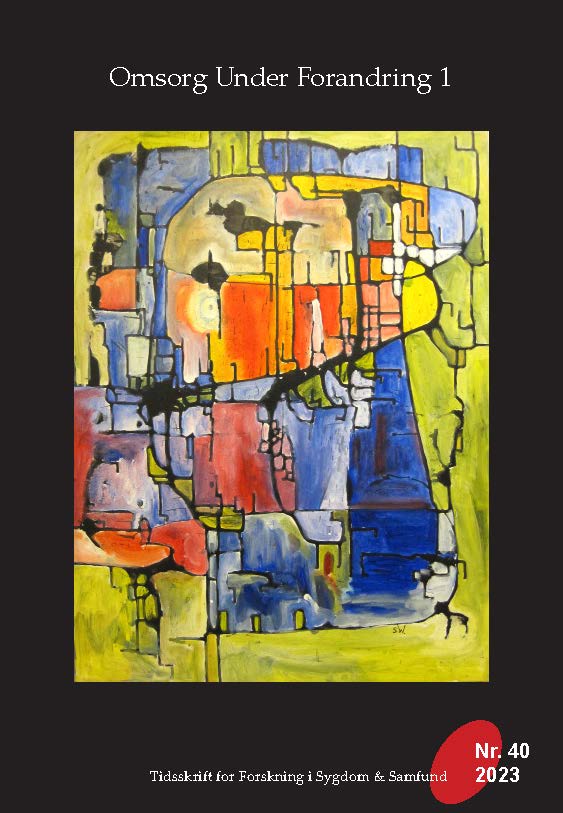Care as love, work, and profession. Paths in Scandinavian care research related to health and illness, 1980-2020.
Published 2024-06-25
How to Cite
Copyright (c) 2024 Helle Timm, Mia Jess, Anette Lykke Hindhede, Tom Møller, Christina Andersen, Kristian Larsen

This work is licensed under a Creative Commons Attribution-NonCommercial 4.0 International License.
Abstract
The article focuses on how Scandinavian care research, in different ways, has defined and explored the concept of care in relation to health and illness. The focus on Scandinavia and the historical period, 1980 – 2020, is justified by the social and welfare state development in the Scandinavian countries which form the basis for care research from around 1980. Care and care relationships in healthcare have been transformed during this period and may be difficult to find today. Perhaps because care and care relationships are now verbalized and explored as something else. Theoretically, we are inspired by Ernst Bloch’s concept of “paths” (Bloch 1985) and an understanding that “care” over time is defined and analyzed in ways that in concrete historical periods can be seen as respectively non-concurrent and concurrent. The article focuses on three theoretical paths: a philosophical, existential path, a social and cultural path, and a pedagogical professional path. The paths can be seen as traditions that have arisen and developed in parallel but in close connection with specific professions, disciplines, and societal development. We find that all care researchers focus on the relationship between people, and that care within each path is generally understood and explored primarily as love, work, and profession, respectively. While love throughout the period has been considered a non-concurrent concept in professional care work, all three paths deal with inequality and power as dimensions in care relationships and practices. A further perspective in future theoretical and empirical research could be to let the different paths inspire each other to a greater degree.


